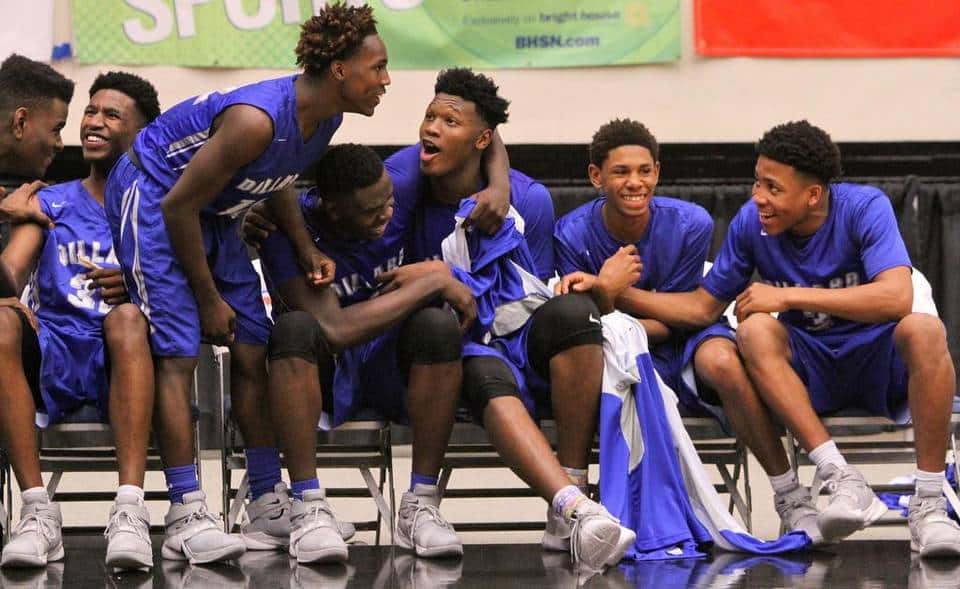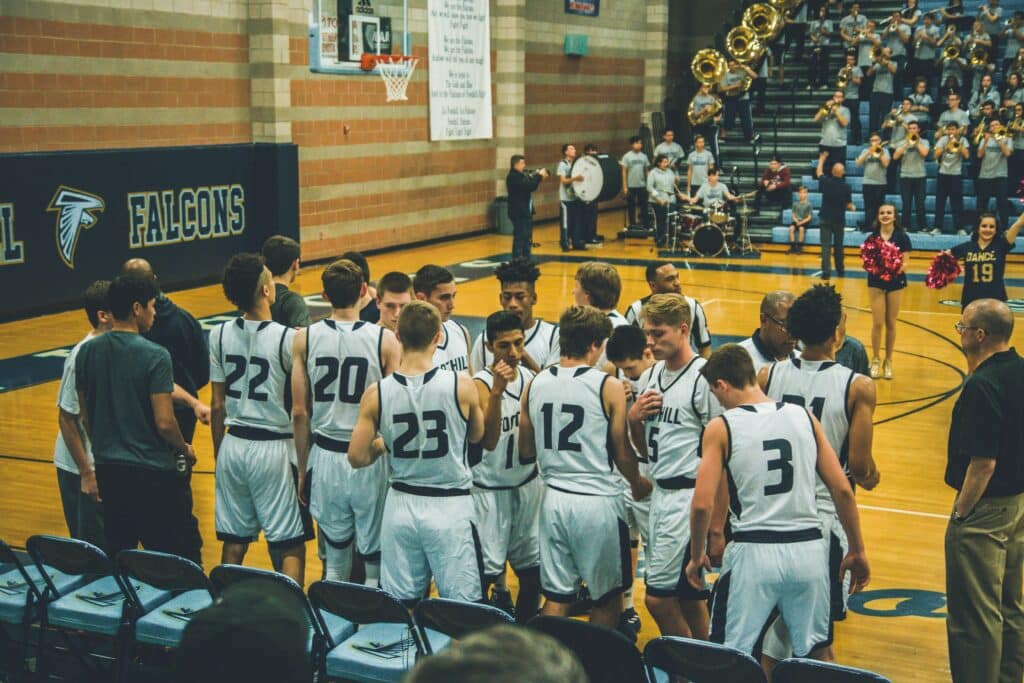
How to Improve Team Chemistry Through Off-Court Activities: Creating a Family Dynamic
Building strong team chemistry is essential for achieving success on the basketball court. While on-court practices and games are crucial, off-court activities play a significant role in strengthening relationships and fostering a cohesive team environment.
This article explores effective strategies for improving team chemistry through off-court activities, helping to create a unified and motivated team.

1. Understanding the Importance of Team Chemistry
Team chemistry refers to the sense of unity and mutual understanding among team members. Strong chemistry enhances communication, trust, and collaboration, leading to improved performance and morale. Off-court activities provide opportunities for players to bond and develop relationships outside of the competitive environment.
Strong team chemistry contributes to better communication on the court, making it easier for players to anticipate each other’s movements and make split-second decisions. It also fosters a supportive atmosphere where players feel comfortable taking risks, knowing they have the backing of their teammates. Ultimately, a team with solid chemistry is more likely to succeed, as they are better equipped to handle adversity and pressure situations.

2. Organizing Team-Building Events
Team-building events are designed to strengthen bonds and improve collaboration among team members:
- Outdoor Activities: Plan outdoor activities such as hiking, obstacle courses, or sports tournaments. These activities encourage teamwork, problem-solving, and mutual support. They also allow players to showcase their strengths in a non-competitive environment, helping to build confidence and camaraderie.
- Workshops and Seminars: Organize workshops or seminars on topics such as leadership, communication, or conflict resolution. These sessions can enhance team dynamics and personal development, equipping players with skills that will benefit them both on and off the court.
- Social Outings: Arrange social outings like dinners, movie nights, or bowling. These casual settings provide opportunities for players to interact and build relationships in a relaxed environment. Sharing fun experiences outside of basketball can break down barriers and encourage friendships.
3. Fostering Team Bonding Through Volunteer Work
Volunteering together can strengthen team bonds and create a sense of shared purpose:
- Community Service Projects: Participate in community service projects such as charity runs, food drives, or environmental clean-ups. Working together for a common cause fosters teamwork and empathy, and players can see the positive impact they have on the community.
- Charity Fundraisers: Organize or participate in charity fundraisers to support local causes. This can include events like bake sales, auctions, or benefit games. Engaging in these activities can promote a sense of pride in being part of a team that gives back.
- Team Volunteering Days: Set aside specific days for team volunteering activities. This ensures that volunteering becomes a regular part of the team’s culture and commitment, reinforcing the bond between players.

4. Creating Team Rituals and Traditions
Establishing team rituals and traditions can enhance camaraderie and create a sense of belonging:
- Pre-Game Rituals: Develop pre-game rituals or routines that the team can perform together. This could include specific warm-up routines, motivational chants, or team huddles. These rituals can help to focus and unify the team before competition.
- Celebration Traditions: Create traditions for celebrating victories or milestones. This might involve team gatherings, special awards, or celebratory meals. Recognizing individual and team achievements reinforces the value of teamwork.
- Annual Events: Organize annual events such as team retreats, award ceremonies, or end-of-season parties. These events help to reinforce team identity and celebrate achievements, creating lasting memories.
5. Encouraging Open Communication
Open communication is vital for building trust and resolving conflicts:
- Regular Team Meetings: Hold regular team meetings to discuss goals, address concerns, and share feedback. Ensure that meetings are inclusive and allow for open dialogue. This can help players feel heard and valued, fostering a culture of trust.
- Feedback Sessions: Implement feedback sessions where players can provide and receive constructive feedback. Encourage honesty and respect during these sessions, and help players understand that constructive criticism is a part of growth.
- Conflict Resolution: Address conflicts promptly and constructively. Use mediation or counseling if necessary to resolve disputes and maintain a positive team environment. Creating a safe space for conflict resolution enhances trust among players.

6. Promoting Inclusivity and Team Unity
Creating an inclusive environment helps to ensure that all team members feel valued and connected:
- Team Introductions: At the start of the season, facilitate team introductions and icebreaker activities to help players get to know each other. Understanding each other’s backgrounds and interests can foster deeper connections.
- Encourage Participation: Involve all players in team activities and decisions. Ensure that everyone has a voice and feels included in team dynamics. This might mean rotating responsibilities in team activities or allowing input in practice planning.
- Celebrate Diversity: Embrace and celebrate the diverse backgrounds and perspectives of team members. Recognize and appreciate each player’s unique contributions, which enrich the team experience.
7. Balancing Team and Individual Needs
While fostering team chemistry, it’s important to balance individual needs and development:
- Individual Goals: Support individual goals and aspirations alongside team objectives. Encourage players to pursue personal growth while contributing to team success. This can include providing opportunities for players to work on individual skills during practice.
- One-on-One Time: Schedule one-on-one meetings with players to address their individual needs and concerns. This helps build strong coach-player relationships and personal trust, ensuring that players feel supported.
- Tailored Activities: Plan off-court activities that accommodate different interests and preferences. This ensures that all team members are engaged and included, fostering a stronger bond.

8. Evaluating and Adjusting Your Approach
Regularly evaluate the effectiveness of your off-court activities and make adjustments as needed:
- Gather Feedback: Solicit feedback from players about the off-court activities and their impact on team chemistry. Use this feedback to make improvements and address any issues.
- Monitor Progress: Assess the progress of team chemistry and dynamics throughout the season. Look for signs of improvement or areas that need further attention. This can include surveying players about their feelings toward team interactions.
- Adjust Activities: Be flexible and willing to adjust off-court activities based on feedback and changing team needs. Ensure that activities remain relevant and beneficial to the group.
How to Improve Team Chemistry Through Off-Court Activities Conclusion:
Improving team chemistry through off-court activities is essential for creating a cohesive and motivated basketball team. By organizing team-building events, fostering team bonding through volunteer work, creating rituals and traditions, encouraging open communication, and promoting inclusivity, you can strengthen relationships and enhance team performance.
Regularly evaluating and adjusting your approach ensures that off-court activities continue to benefit the team and contribute to long-term success.



